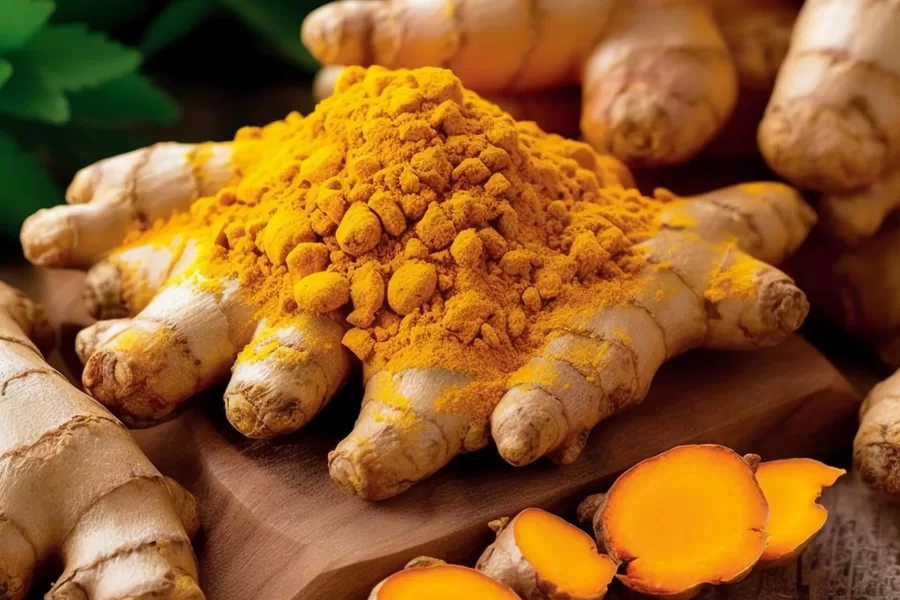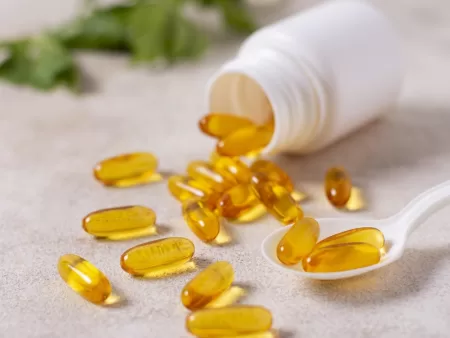
The influence of a common seasoning that every housewife has in her kitchen on health, and especially on a hormone such as testosterone. What benefits does ginger provide to the body and how it was used in medicine. What other benefits does using it provide?
An Overview of a Key Hormonal Ingredient
This hormonal ingredient, integral to both sexes, is typically linked with masculine characteristics but has a broader physiological impact. Predominantly generated in the male reproductive sphere and in lesser quantities in the female system, it is pivotal in shaping both anatomical features and psychological conditions.
Influence on Gender-Specific Attributes
In males, this hormone is essential for developing reproductive structures and defining male-centric attributes like enhanced muscularity and distinctive hair growth. In the female body, while present in minimal amounts, it contributes significantly to bone strength and affects certain behavior patterns, highlighting its extensive role in overall health.
Variability in Different Life Phases
Throughout the lifecycle, the levels of this hormone fluctuate. Particularly heightened during adolescence, it facilitates critical developments in sexual characteristics and bodily growth. Aging in males brings a natural downturn in this hormone, affecting physical endurance, bone solidity, and intimate drive.
Health Conditions and Their Influence on Hormonal Health
Diverse health conditions can impact the hormonal landscape. Issues impacting reproductive organs or the pituitary gland, like hypogonadism, can reduce its levels. Conditions like obesity, diabetes, and other hormonal imbalances also have the potential to disrupt its standard production and balance.
In conclusion, this hormonal ingredient plays a crucial role in health for both genders, influencing physical capabilities, emotional health, and reproductive functions. Its concentrations are influenced by a combination of genetic predispositions, lifestyle choices, and health issues. Thorough understanding and careful management of these factors are imperative for sustaining a balanced hormonal state and overall health.
Ginger’s Health Secrets
Ginger isn’t just a spice that adds flavor to food; it’s also full of stuff that’s good for you. Think of ginger like a little health booster. It’s got this thing called gingerol. That’s what makes ginger taste spicy and also helps keep you healthy.
Full of Goodness
Ginger is like a shield for your body. It’s got loads of antioxidants. These are like tiny bodyguards that fight off bad things in your body that can make you sick. These antioxidants in ginger help keep your body strong and healthy. They’re really good at fighting off damage that can happen inside your body without you even knowing.
Fighting Inflammation
Another cool thing about ginger is that it can help with swelling and pain in your body, which is what happens when a part of your body gets inflamed. If you’ve ever had a sore throat or a swollen knee, that’s inflammation. Ginger helps calm this down. This means it can help you feel better when you have aches or pains in your body.
Small but Mighty Nutrients
Ginger might not be a big source of vitamins and minerals, but it still has some important ones. It has vitamin B6, which keeps your brain and body’s defense system strong. It also has magnesium, which is important for your muscles and bones, and manganese, which helps your body in lots of ways like keeping your bones strong and helping to heal wounds.
Ginger and Its Possible Benefits for Hormones
Ginger, often used to spice up our meals, might also have some cool benefits for our bodies, particularly for a hormone called testosterone. This hormone is really important for both men and women, as it helps in many ways, like keeping muscles strong and bones healthy.
There’s some talk that ginger could be helpful in boosting testosterone levels. This is pretty interesting because it means a simple thing like ginger could help in a big way. Testosterone helps with a lot of stuff in our bodies, like how we build muscles and how much energy we have.
What’s Good About Ginger?
Some people also think that ginger might directly encourage our bodies to make more testosterone. It’s like giving a gentle push to our body’s natural way of doing things. This idea is still being explored, but it’s a cool possibility.
Using Ginger in Daily Life
Thinking about trying ginger for these benefits? It’s a good idea but remember, ginger isn’t a magic fix. It’s a tasty and natural thing you can add to what you eat and drink. Ginger can be used in many ways, such as:
- In Teas: A soothing option, perfect for relaxation or easing stomach aches.
- In Cooking: Adds a unique flavor to dishes, from stir-fries to soups.
- As a Supplement: Convenient for those who prefer not to eat it directly.
Plus, it’s known for helping with stomach aches and nausea.
Remember, having ginger is just one part of staying healthy. To maintain overall well-being, consider these aspects:
- Eating Well: A balanced diet is crucial for good health.
- Being Active: Regular physical activity supports physical and mental health.
- Overall Health Care: Regular check-ups and mindful health practices are important.
But adding a little ginger could be a simple, natural way to help your health, including possibly your hormone levels.
Ginger might do more than just make our food taste good. It could also help with important things in our body, like testosterone levels. While we’re still learning about all of ginger’s benefits, adding it to your diet might be a great step for your health.
Incorporating ginger into your lifestyle can be a delightful and healthful choice. Whether used in your kitchen, enjoyed as a tea, or taken as a supplement, ginger offers a range of possible health benefits that are still being explored.
Ginger’s Role in Old and New Health Practices
Ginger, that spicy root we often use in cooking, has been a big deal in old health practices for a long time. In places like India and China, where they have their own traditional ways of healing, ginger has been super popular. People have used it for things like making digestion better, easing pain, and even fighting colds. But one of the most interesting uses has been for balancing hormones – those important chemicals in our bodies that control all sorts of things.
In these traditional health systems, like Ayurveda and Chinese medicine, folks believed ginger helped keep the body’s balance right. They thought it could make sure the hormones in our body were working just as they should, which is super important for staying healthy and feeling good.
The Role of Ginger in Traditional and Modern Health Practices
Ginger, well-known for its sharp taste, is not just a kitchen favorite. It has a long history in traditional medicine systems like Ayurveda in India and ancient Chinese healing practices. For centuries, it’s been used for more than just flavoring food – it’s been a key player in managing the body’s energy and even hormonal levels.
In these traditional health systems, ginger has been seen as a powerful tool. Healers believed that it could help balance the body’s natural rhythms and energies. This includes managing hormones, which are super important because they act like messengers in our bodies, telling different parts what to do. So, having the right hormone balance is key to feeling good and staying healthy.
Why Ginger Stands Out in Traditional Medicine
Why did ancient healers turn to ginger? They saw it as a way to help with a lot of different health issues. It was used to make digestion better, to reduce pain, and even to help fight off colds and flu. But one of its standout uses was to help keep hormones in check. This was important for everything from staying energetic to keeping a good mood.
Ginger and Modern Scientific Studies
Now, let’s talk about what modern science is saying. Researchers are getting more and more interested in ginger because of its history in traditional medicine. They’re finding out that those ancient healers were onto something. Studies today are showing that ginger might really help with balancing hormones and improving overall health.
Scientists have discovered that ginger is full of good stuff like antioxidants and anti-inflammatory compounds. These help protect our bodies from inside and might play a big role in managing hormone levels. This is big news because hormones affect so many parts of our health – from how much energy we have, to how we grow, and even how we feel every day.
While there’s still a lot to learn, the research so far is pretty exciting. It suggests that ginger could be more than just a tasty spice – it might be a helpful tool for keeping our hormones in balance and keeping us feeling good. This link between ancient wisdom and new science is opening up new ideas about natural ways to stay healthy.
So, whether it’s in traditional healing or modern science, ginger seems to have a special place. It’s not just about flavor; it’s also about feeling good. As we continue to learn more, we might discover even more ways that ginger can help us stay healthy and balanced.
Enhancing Your Diet with This Zesty Spice
This aromatic root, known for its distinct flavor, is a versatile addition to any kitchen. Available in several forms – from fresh and dried to powdered and even as an oil or juice – it brings a unique taste to a variety of dishes. Let’s explore how to integrate this spice into everyday cooking and beverages.
Fresh Form for a Vivid Flavor
When used fresh, this root adds a sharp, spicy kick to meals. Grating or slicing it into thin pieces is perfect for infusing its flavor into stir-fries, soups, or even morning beverages. Its fresh zest enhances the overall flavor of your culinary creations.
Dried and Ground for Ease and Longevity
The dried and ground version is convenient for extended use and imparts a gentler flavor. It’s excellent for baked goods, adding a subtle warmth to recipes like gingerbread. Sprinkling it on breakfast foods like oatmeal or yogurt is a quick way to enjoy its taste.
Oil and Juice for Intense Flavor
In its oil or juice form, this root offers a concentrated flavor. A small amount can significantly enrich marinades, dressings, or beverages. These potent forms are effective in delivering a strong taste to various recipes.
Soothing Teas
Creating a tea with the fresh or dried root is a delightful way to enjoy its benefits. Adding honey or lemon enhances the flavor of this soothing beverage, known for aiding digestion and providing comfort.
Blended into Beverages
Incorporating this root into smoothies or homemade juices adds a spicy twist. It pairs well with various fruits, offering a unique flavor profile and making your drinks both healthier and more flavorful.
Cooking Applications
This spice is celebrated in culinary traditions worldwide. It’s a fantastic addition to marinades and sauces and can even be included in dessert recipes. Its warm, spicy essence elevates the taste of any dish, be it meat-based or vegetarian.
Remember, while beneficial, it’s important to use this spice judiciously. Too much can lead to discomfort. Start with modest amounts to enjoy its flavor and health benefits optimally.
In conclusion, this spice is a simple yet impactful way to enhance your daily meals. Whether in beverages or dishes, it offers a combination of taste and health benefits. Moderation is key to making the most of this spice’s unique qualities.
Conclusion
Critical hormonal agent, influential in both genders, plays a pivotal role in shaping physical strength and emotional wellness. Significance of exercise and a well-balanced diet in regulating hormonal equilibrium and promoting overall health. Traditional practices like Ayurveda and Chinese medicine have long utilized ginger for its ability to harmonize bodily energies and hormonal levels. Modern scientific validation highlights ginger’s health-boosting attributes, particularly its antioxidant and anti-inflammatory capacities. Versatile incorporation of ginger in daily cuisine, ranging from teas to culinary dishes, enhances flavor and supports health.
FAQs
Current research points to ginger’s potential in influencing hormonal stability, attributed mainly to its antioxidative and anti-inflammatory qualities.
Ginger is acknowledged for its health merits across both genders, impacting areas like muscle vigor and mental health.
In ancient healing systems such as Ayurveda, ginger has been revered for its capacity to regulate bodily energies and support hormonal equilibrium.
There are multiple ways to incorporate ginger, including using it fresh in dishes, as a dried spice, or steeped in teas, enhancing both flavor and nutritional intake.
A balanced diet and consistent exercise play a pivotal role in hormone regulation, synergistically working with ginger’s health benefits.







